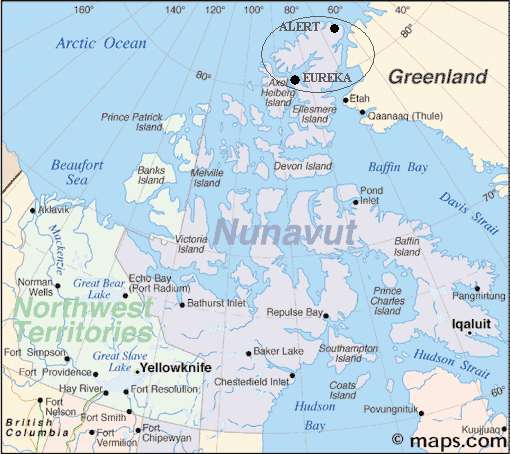In 2013, a team of researchers set sail to the eastern Beaufort Sea in search of evidence for the flood near where the Mackenzie River enters the Arctic Ocean, forming the border between Canada's Yukon and Northwest territories. From aboard the US Coast Guard Cutter Healy in ice-covered waters, the team gathered sediment cores from along the continental slope east of the Mackenzie River. Above, the piston corer is shown in horizontal position, with the gravity corer hanging vertically ready to be launched. Credit: Lloyd Keigwin, Woods Hole Oceanographic Institution

1 posted on
07/15/2018 11:22:34 PM PDT by
SunkenCiv
To: SunkenCiv
Now the Dems will blame it on Trump! A guy can’t win, can he? Oh wait, that’s all he’s been doing.
Guess then that they will have to blame it on Bush.
To: SunkenCiv
The problem with how this is presented is that the last BIG drop in temps was not 13,000 years ago, it started over 100,000 years ago. That “sharp” decline appears to have taken around 10k years, and then after that it gradually (with some fluctuations including the cold snap discussed in the article) got even colder, until it finally warmed fairly rapidly to approx. current temps (the beginning of our current ~11,700 yr. old interglacial period.)
In other words, the flood occurred during what was already a vicious and long period of glaciation that almost did in humans — but also likely helped forge us. A brief warm spell likely triggered the flood, melting huge quantities of Canadian glaciers, but at present there simply isn’t enough ice in Canada (even in winter) to cause a repeat performance. I somewhat doubt that at present such an occurrence (a sudden release of huge quantities of fresh water) could similarly encore anywhere in the Northern Hemisphere, except maybe in Greenland — but I suspect Greenland would drain more gradually and “evenly”. Antarctica might be a different story, but I know of no evidence to support that. (Ok, I don’t claim to know “everything”!!!) :-)
9 posted on
07/16/2018 1:30:42 AM PDT by
Paul R.
To: SunkenCiv
14 posted on
07/16/2018 7:44:31 AM PDT by
cranked
To: SunkenCiv
We know the magnetic poles switch every so often. It’s logical to assume the climate is affected by that switch. I blame any current climate change on the current movement of the magnetic North Pole.
15 posted on
07/16/2018 12:43:26 PM PDT by
aimhigh
(1 John 3:23)
To: SunkenCiv
My understanding of the impact of the Younger Dryas is that the prior warming had led to greater northern reach of flora and fauna, extending the human bounty northward into Eurasia whose populations subsequently increased.
The sudden cooling of the Younger Dryas forced a concentration of these humans and their food supplies into the mid-east latitudes, still plentiful, resulting in settlement and, next, farming.
Am I at least treading water here?
16 posted on
07/16/2018 1:55:54 PM PDT by
nicollo
(I said no!)
To: SunkenCiv
The Mackenzie River's outflow is into the Beaufort sea, part of the Arctic Ocean, and much closer to Alaska's North Slope and the Bering Sea (which is part of the Pacific). The North Atlantic is much further away, and a there is amass of islands, Baffin Bay, and then the Labrador sea, until you get to the North Atlantic proper.
I always heard that they assumed it was freshwater outflow from the Saint Lawrence river (what little there was of it, covered with ice) and a subsequent ice dam along Newfoundland and Nova Scotia burst.
The Mackenzie River just seems to far away.

Note the Mackenzie River way over to the Northwest on this map. Almost outflows in Alaska.
23 posted on
07/16/2018 6:28:25 PM PDT by
Alas Babylon!
(MAGAMarchOnWashington.com)
FreeRepublic.com is powered by software copyright 2000-2008 John Robinson

